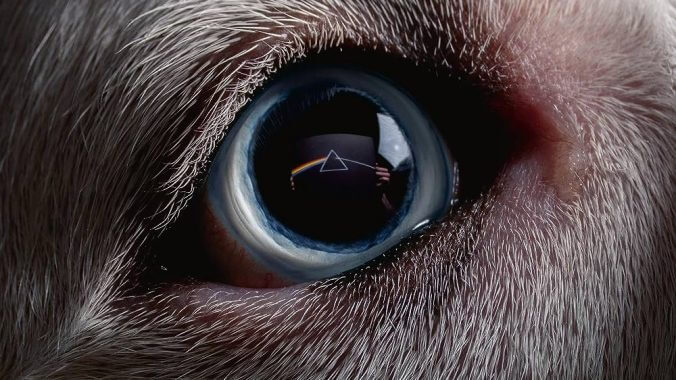Roger Waters Fronts a Colorless Remake of a Classic Album With The Dark Side of the Moon Redux
The Pink Floyd ex-bassist re-records a legendary project, but not without the questionable addition of spoken word passages, a slower tempo and unnecessary instrumentation

Before the music even begins on Pink Floyd’s original recording of The Dark Side of the Moon, the voices are there. “I’ve been mad for fucking years,” one of them says. “I’ve always been mad,” another concurs. These mysterious, unidentified voices recur throughout the original recording and are one of its most ingenious motifs. They center the album’s theme of madness, acting like psychotic auditory hallucinations in the listener’s head.
The idea for the voices came from Roger Waters, the band’s bassist and principal songwriter. He gathered them by interviewing various studio hands and roadies—first asking innocent questions, before gradually moving into darker territory. But, in his solo re-recording of the album, released today and titled The Dark Side of the Moon Redux, Waters has dispensed with the voices, turning a polyphonic rock symphony into a kind of sprechstimme monologue.
The voice of Waters is omnipresent on this re-recording. And it is not just restricted to the album’s lyrics. In the spaces between the singing, he has added spoken word passages. These include readings from the lyrics to Pink Floyd’s 1972 song “Free Four,” an email exchange he had following the death of a friend, a recollection of a dream he scribbled down immediately after waking up and various other scraps of text he seems to have had lying around. These spoken passages make you realize how much of the original album was wordless. There was the ticking clock on “Time,” the vocalizations on “The Great Gig in the Sky,” and the saxophone solo on “Money.” They also make you realize how, sometimes, you can say a lot more without using any words at all.
In an interview with The Telegraph this year, Waters justified this re-recording, stating of the original album that “not enough people recognised what it’s about.” But, for all of its brilliance, the original Dark Side of the Moon was rarely an album that rendered its meaning with great subtlety. It’s a struggle to imagine that many listeners failed to grasp what “Money” was about. And, for those who did, it’s even harder to see how a ponderous four-minute prose poem, replacing the instrumental middle section, will add any clarity. Sometimes a saxophone solo is worth a thousand words.
-

-

-

-

-

-

-

-

-

-

-

-

-

-

-

-

-

-

-

-

-

-

-

-

-

-

-

-

-

-

-

-

-

-

-

-

-

-

-

-








































